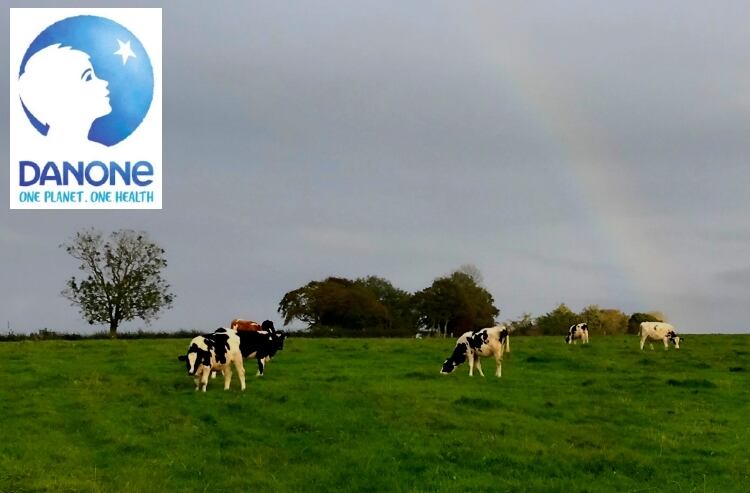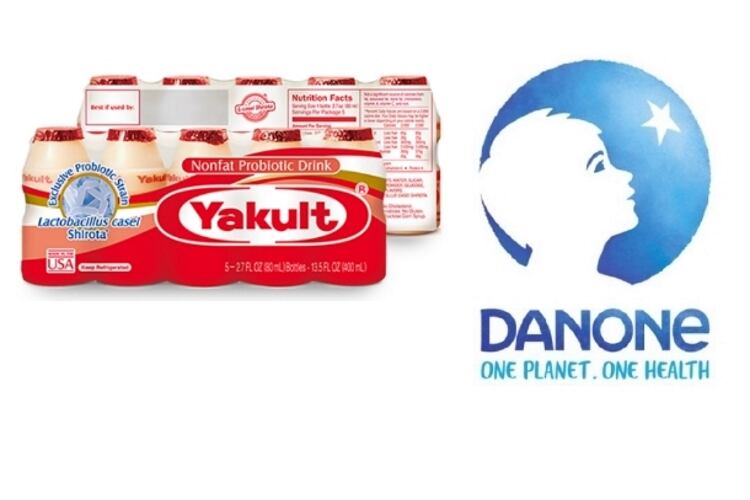He said the global pandemic has accelerated some of the patterns of the food revolution and altered others.
“Among the aspects that are favorable to Danone: the increased perceived relationship between health and food and notably on immunity to which fermented proteins, and probiotics participate but also the accelerated conversion to plant-based diets or the boom in e-commerce.
“Conversely, we are confronted with factors such as the closure of out-of-home channels affecting everywhere our Water business, with the reduction of SKU ranges by our retail partners, or the announced dip in birth number dynamics, but also with the elevated cost of operating with sanitary measures and the cost of securing procurement and physical flaws of our products.”
Faber said that, last July, the company would give itself until the end of the year to work on its adaptation plan.
“This transformation is necessary because we are at this stage in the paradoxical situation where on one hand, our One Planet. One Health frame of action anchored in a portfolio of healthy and sustainable products and brands is even more relevant in today’s world, but on the other hand we are unable to fully reap the benefits of the current positive trends nor face in an optimal way their challenges. Our recent results evidence this. We definitely need to reinvent ourselves, as a company, very much like all of us are doing it in our own ways of living, working or consuming.
“In this reinvention of food, the most prominent paradigm accelerated by the pandemic is undoubtedly the trend toward local. It is a systemic evolution whereby the diversity of dietary habits rooted in their local cultures is now considered as a key security and resilience factor for global food systems. It is also a major political trend with the strong emergence of national food sovereignty narratives in many countries. It is finally and for long a consumer trend where many perceive local as a way to regain control over their food,” Faber said.
Faber said the adaptation plan can be summarized as “Local First.”
He said “Local First” is a plan by which local business units will regain autonomy, everywhere, as close as possible to consumers and the field.
For this, business entities in countries will no longer be dependent on a specific global category organization but will be unified in one single local business unit playing with strength and efficiency on the whole range of local specificities to serve clients and consumers and therefore to grow.
“Because each of them has a unique contribution, expertise, experience, we also want our countries to participate actively to the global management of the company. Consistent with that, they will be represented at the executive committee by zone presidents,” Faber explained.
By giving power back to countries, Faber said Danone will regain agility, by shortening decision-making processes: for example by having only two decision-making levels on capital expenditure where there are five today or two levels to manage a brand like Activia where there are four today.
“By doing this, we will profoundly change the nature of the role of our headquarters because central functions will have a new role essential to serving the competitiveness of our countries. These shared or “common” functions will harness and foster the collective intelligence which makes the uniqueness of this company: our culture, our talents, our expertise, the data and the common language that they will allow, but also the access to technologies and resources in capital.
“It will be critical that these common functions are symbiotic with our local entities and better connected to our business. This is among the reasons why we will study relocating our global headquarters in Paris closer to our French business headquarters. This simplification and evolution in the role of our common functions will translate in reductions of around 1,500 to 2,000 positions in local and global headquarters, with up to 25% of current job positions for our global headquarters. And we will on this topic pay particular attention to the quality of the human and social aspects of this transformation including by implementing the specific policies that we have designed to face the current crisis with our social values and principles.”
Faber said the plan will improve efficiency and competitiveness. Local First works with the implementation of the new integrated value chain organization End-to-End Design-to-Delivery announced on October 19, which is intended to access new sources of productivity including through digitalization. Combined, these pillars of the plan will generate recurring savings amounting to €1bn ($1.19bn) by 2023, which will be partly reinvested in support of growth and brands but also to re-enforce margins.
“After 12 months of COVID, we now forecast thanks to this adaptation plan to return to profitable growth in less than 12 months, as soon as H2 2021 and for our recurring operating margin to return to its pre-COVID levels at more than 15% by 2022,” Faber said.
Objectives: updated financial targets
By reshaping its organization, Danone targets to deliver €1bn cost savings by 2023, including €300m ($357m) from reduced cost of goods and €700m ($833m) related to general and administrative costs (representing around 20% reduction in overheads costs). Expected savings will be partly reinvested to fuel growth opportunities and contribute to progress the profitable growth agenda of the company. Total one-off costs related to the new organization initiatives are expected to be around €1.4bn ($1.67bn) for the 2021-2023 period.
Danone also reconfirmed its mid-term ambition of achieving 3% to 5% profitable like-for-like revenue growth. Taking into account the €1bn cost savings plan announced, the company now targets mid-term recurring operating margin to reach mid-to-high teen levels, with the first milestone to be above 15% in 2022.
The company also confirmed its 2020 guidance of full-year 14% recurring operating margin and the delivery of €1.8bn ($2.14bn) free cash flow despite more challenging market conditions in the fourth quarter created by new waves of restrictions and closures since Q3 announcement from local pandemic spikes, notably in Europe.
To ensure decisions are pushed down to a local level, Danone International will be organized under five zones: Europe, Asia/Africa & Middle East, Greater China & Oceania, CIS & Turkey and Latin America.




